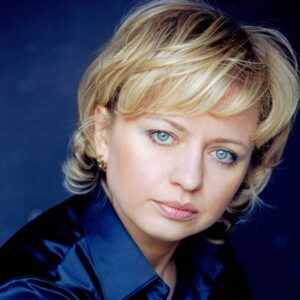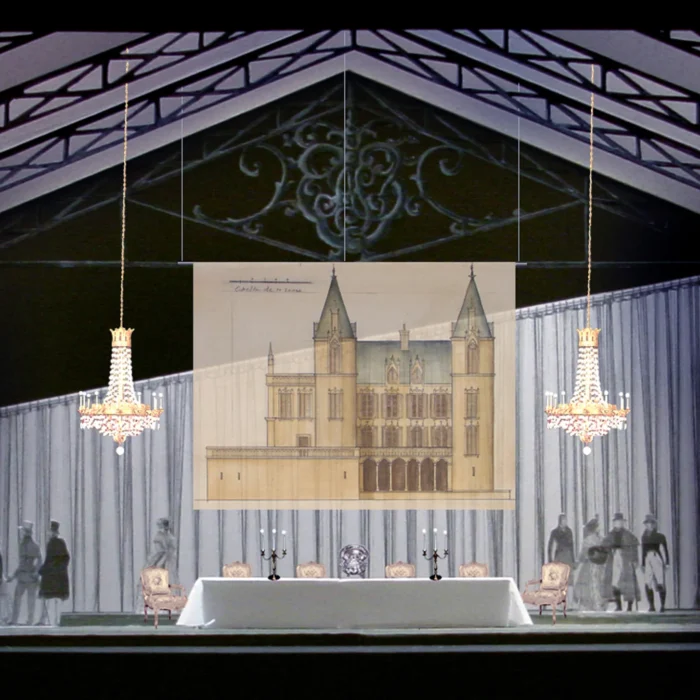
Artist of the Week: Anna Skryleva
By Francisco SalazarThis week, the Teatro alla Scala is set to world premiere “Anna A.,” a new work by Silvia Colasanti. The work is conceived primarily for a young audience and tells the story of the poet Anna Akhmatova in 20th-century Russia. Narrated through a language that blends music and spoken word, the opera delivers a universal message about the conflict between art and power.
For the world premiere, Anna Skryleva will conduct the score, making her La Scala debut.
OperaWire had a short interview with the conductor about the new opera and her awaited debut at the famed opera house.
OperaWire: What does it feel like to debut at the Teatro alla Scala?
Anna Skryleva: La Scala is a place of extraordinary aura – truly a temple of opera. Historic premieres such as Verdi’s “Otello” or Puccini’s “Turandot,” conducted by Arturo Toscanini, took place here. This legacy is palpable everywhere and at the same time, it creates a strong sense of responsibility. As a conductor, I feel this especially when presenting a new work. Being a composer myself, I know the journey from the very first sketches, through long hours at the desk, to rehearsals with singers and orchestra, until the music finally meets its audience. Every world premiere means giving a work its first breath of life – and perhaps even shaping the tradition for future performances.
It is therefore an incredibly exciting process, one that involves the whole team. The atmosphere of La Scala is deeply inspiring, and from the very first moment I felt both welcomed and uplifted by the house.
OW: Tell me about the score of “Anna A” and what excites you about bringing this work to La Scala.
AS: When I received the invitation to conduct a world premiere at La Scala, I was thrilled. But when I learned that the subject was Anna Akhmatova, I was truly speechless. She is one of the most important poets of the 20th century, and already as a teenager, I was deeply drawn to her work – I memorized her poems and even started writing my own, inspired by her language.
The opera, however, is not only about Akhmatova herself, but also about an entire era: the fate of artists under Stalinist terror. Many had to leave Russia – Nabokov, Prokofiev, Stravinsky, Rachmaninoff – while others, like Akhmatova’s first husband, Nikolai Gumilev, were executed. I have long been fascinated by this historical period, and Silvia Colasanti’s opera opens a new artistic door into it for me. What makes the project even more powerful is its shocking relevance today: once again, a hundred years later, intellectuals in Russia are persecuted, artists are forced into exile. This makes the work resonate on a very contemporary level.
OW: What can audiences expect from this work, and what do you hope the audience takes away from it?
AS: Silvia Colasanti describes her opera as an “Opera in fragments.” It is indeed like a mosaic: different episodes from Akhmatova’s life are portrayed through singers, chorus, and actresses who embody both Akhmatova and her close friend Lidiya Chukovskaya in her final years. Together they create a vivid picture that combines the personal with the historical dimension.
Audiences will be drawn into a time marked by loss, repression, but also by immense artistic strength. These voices – Akhmatova’s and those of her contemporaries – remain alive even today. The opera invites us to reflect on the role of art and culture: how they shape identity, how they endure political pressure, and how they leave a lasting imprint on history. I hope the audience will feel these parallels to our present moment and recognize the power of art in difficult times.
OW: How does it challenge you as a conductor, and what is your favourite part of conducting this work?
AS: The greatest challenge for me is to hear Akhmatova’s words not in Russian, but in Italian. I know her poetry in its original language – its rhythm, density, and sharpness. In Colasanti’s setting, however, the poems are sung in Italian, and this opens a new dimension for me: the language is softer, more melodic, and perfectly suited for singing. It offers a fresh, lyrical perspective on Akhmatova, which I find both surprising and inspiring.
What fascinates me most musically are the choral passages. They act like a lamenting, almost mythical voice that threads through the entire opera, giving it a deep intensity. At the same time, there are many clear themes and motifs that immediately stay in the ear. The music is direct and accessible – I am sure that even people attending the opera for the very first time will connect with it instantly. For me as a conductor, it is deeply fulfilling to bring out this spectrum of clarity, emotional depth, and immediacy.
For those not at La Scala, the conductor will lead performances in Malmo and Australia later this season.


